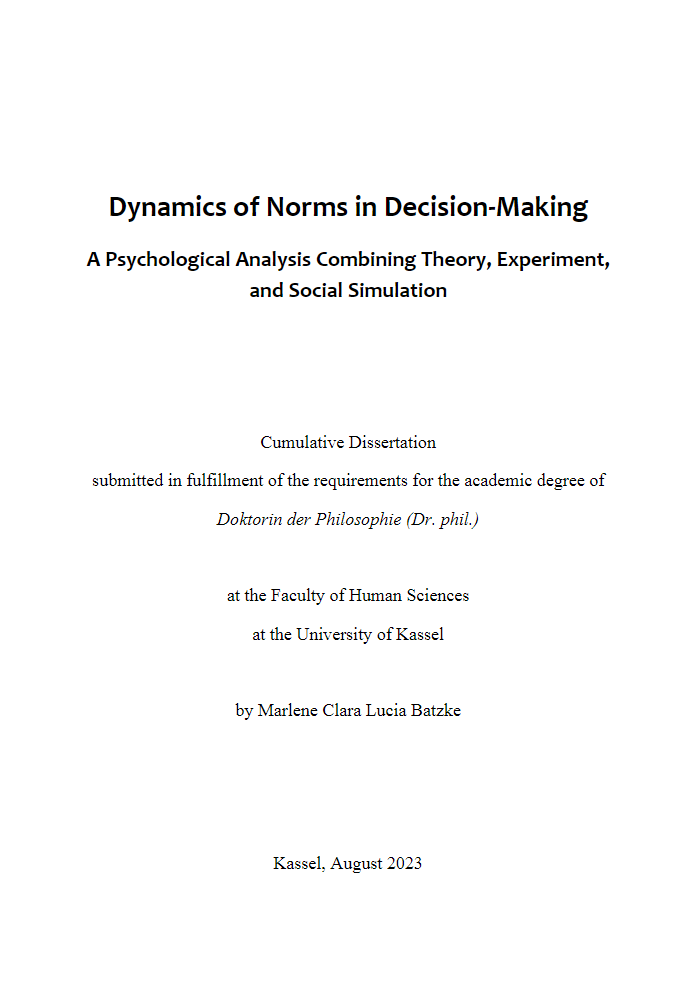A Psychological Analysis Combining Theory, Experiment, and Social Simulation
So far, there is a lack of understanding how norms change. The aim of the present dissertation was twofold: (1) addressing differences between change processes of different types of norms and (2) focusing more particularly on how norms are internalized. To study norm dynamics, a multi-method approach was chosen, combining theory, social simulation, and experimental research. In the theoretical contribution, a psychologically grounded conceptual model of norm change and decision-making was presented. Based on a refined norm taxonomy, the conceptual model states theoretically and empirically grounded assumptions about how different types of norms change and influence each other as well as decision-making. Moreover, it includes assumptions about the norm internalization process. The behavioral and social consequences of the theoretical assumptions over time were investigated via social simulation, more specifically agent-based modeling. The agent-based model entails a dynamic theory of decision-making. Therein, norm internalization (i.e., personal norm change) was assumed a slow learning process, occurring slower than the learning of social norms. Simulation experiments showed that a cooperative personal norm can be internalized as appropriate with different underlying motivational structures – even those favoring non-cooperation from the start. Simulation experiments further showed possible conditions for social (in)equality and behavioral (in)stability.
The assumed differences in the temporal dynamics of personal norm change and social norm change were investigated in an experimental study. Participants played a repeated social dilemma game with artificial co-players, who’s behavior differed by experimental condition as well as changed within each condition across the game. This allowed differentiating fast changes in social norms and slow changes in personal norms, which were assessed throughout the game. In support of the assumptions, personal norms tended to change more slowly and were affected not just by situational factors (as in the case of social norms) but also personal factors.
The simulated and experimental data of behavior, social norms, and personal norms were compared with each other, aiming for a deeper understanding of norm change processes. Participants’ and agents’ social norm changes showed similarities. Regarding personal norm change, the agent-based model was improved by implementing a new mechanism: a negativity bias, making internalization of the appropriateness of cooperation more difficult compared to defectivity. Hence, the comparison led to suggest that a negativity bias is a possible mechanism in norm internalization. Limitations regarding the external validity, internal validity, and generalizability of the results are discussed. Finally, starting points for future research are presented and the demand for an interdisciplinary view and multimethodological approach for tackling the next frontiers in norm research is stated.

